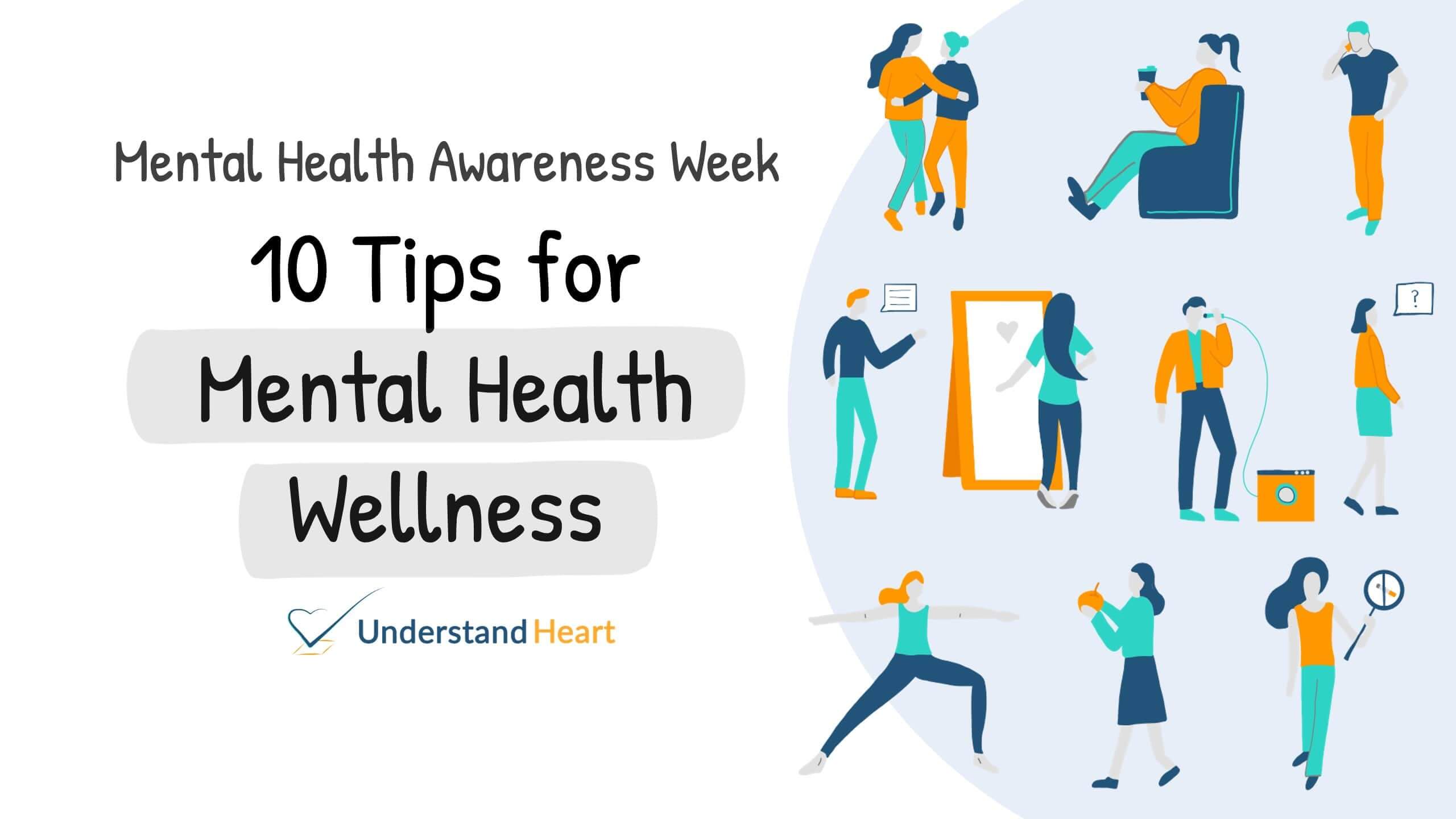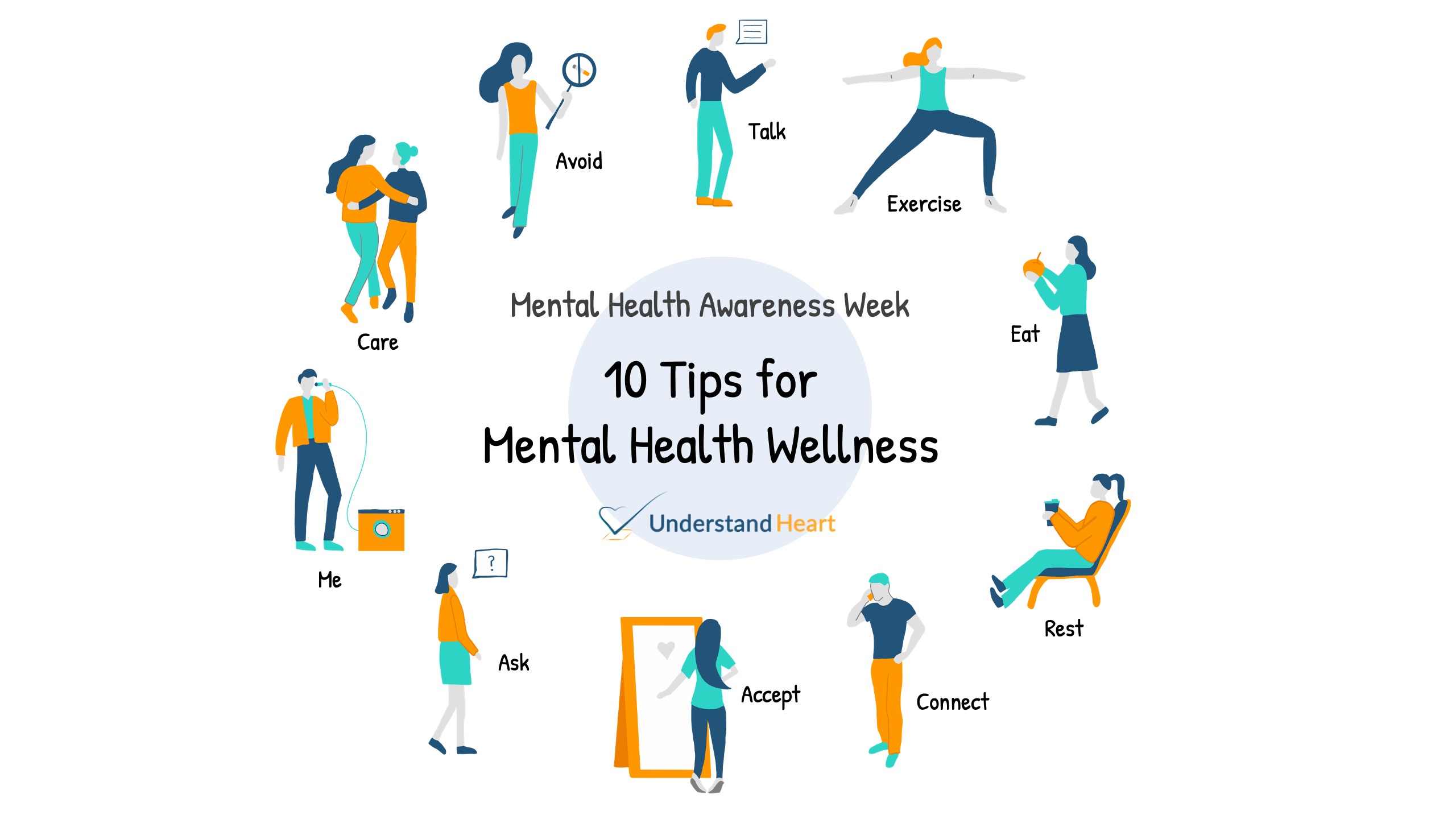Mental Health Wellbeing Tips | Mental Health Awareness Week

Since 2001, the Mental Health Foundation, a UK charity focused on improving mental health, have been organising a Mental Health Awareness Week for one week each May to raise awareness of mental health issues. The topic this year is kindness which is especially important during this uncertain period of the COVID-19 pandemic. Afterall, amidst all the negativity, it is the acts of kindness which shines through and gets us through the day.
How to support it?
Apart from donating to the Mental Health Foundation, you can support the Mental Health Awareness Week by doing your part:
Online
Promote the social media graphics on your social media platforms using #KindnessMatters #MentalHealthAwarenessWeek and tag the Mental Health Foundation
- Facebook: @mentalhealthfoundation
- Twitter: @mentalhealth
- Instagram: @mentalhealthfoundation
Connect with friends and family online through social media / phone calls.
At Home
- Help out with household chores,
- Make your family members a cup of tea.
- Share an interesting article / joke
In the Community
- Donate to a local charity or food bank
- Support a vulnerable neighbour
At your Workplace
- Offer a listening ear
- Praise colleagues for their good work
For our fellow healthcare workers
Supporting the movement during this COVID-19 pandemic is especially important for the frontline healthcare workers who are very good at looking after others but not themselves. The uncertainty of the situation causes a lot of anxiety, worries and fear about personal health, family members, patients and professional development and progression. Therefore, as a healthcare professional, we should:
- Support each other by listening and offering a chance to have a conversation
- Recognise and acknowledge that it is normal to be anxious and worried with uncertainties
- Discuss and share healthy coping strategies
- Take a break
- Seek professional help
Only when we can take care of ourselves then can we take care of our patients!
Mental health and the heart
Mental health has also been recognised to be associated with heart disease. In a recently published paper by the European Society of Cardiology (ESC), it has been recognised that depression is linked with coronary artery disease. Depression not only affects the quality of life but also the cardiovascular outcomes in terms of mortality and hospitalisation. Therefore, it is very important for us as cardiologists to recognise depression in our patients and integrate its management into our cardiovascular risk factor modification advice to patients.

Self-management strategy (modified from Mental Health Foundation)
1. Talk about your feelings
Open up to someone and discuss things that are bothering you. Sharing your feelings and acknowledging the problem is the first step to solving the issues. Sharing can also promote discussion and come up with coping strategies.
2. Keep active and exercise
Regular exercise can boost self-esteem and make you feel better (both mentally and physically). Exercise can take many forms – a 30-minute work-out video, a short jog around the neighbourhood, gardening or even housework.
3. Eat well and keep hydrated
A healthy and balanced diet containing necessary nutrients can do wonders for your health (mental and physical). Keeping an adequate amount of fluid intake is also important to maintain a healthy lifestyle.
4. Drink sensibly / Avoid harmful substances
Some people turn to alcohol, drugs and smoking as a coping mechanism but the effects of these substances are only temporary. Instead, they tend to cause more problems than they solve. For alcohol – drink sensibly and avoid drugs and nicotine!
5. Keep in touch with friends and family
Catching up with friends and family provides an avenue for sharing feelings and support. There are many other ways to do so during the lockdown such as phone or video calls, social media apps or messaging services.
6. Ask for help
At some point in our lives, we all feel overwhelmed by situations and may find it hard to cope. It is important to ask for help during these times. Many people see this is a sign of weakness, but it is not – being able to recognise limitations is a strength!
7. Take a break
A change of scene or pace can be a breath of fresh air for anyone during times of intense stress. Taking a break, be it a lunch break at work, a 5-minute walk away from the computer or even a detox from social media can do wonders for your mental health.
8. Do something for yourself
It is important to do something for yourself once in a while. Doing an activity for yourself which you enjoy can help boost your self-esteem and allow you to let go of your worries temporarily and improve your mood.
9. Accept who you are
We are all different and being able to recognise and accept this will make you feel better about yourself. All of us have different skill sets and characteristics which makes us unique and we can contribute to humanity in our own special way.
10. Care for others
Lastly, caring for others is another way of improving our mental health. Acts of kindness, however small, can improve relationships, bring people closer, boost our self-esteem and provide hope! Therefore, in conjunction with this year’s Mental Health Awareness Week theme – kindness, I urge everyone to perform acts of kindness and spread the word!
